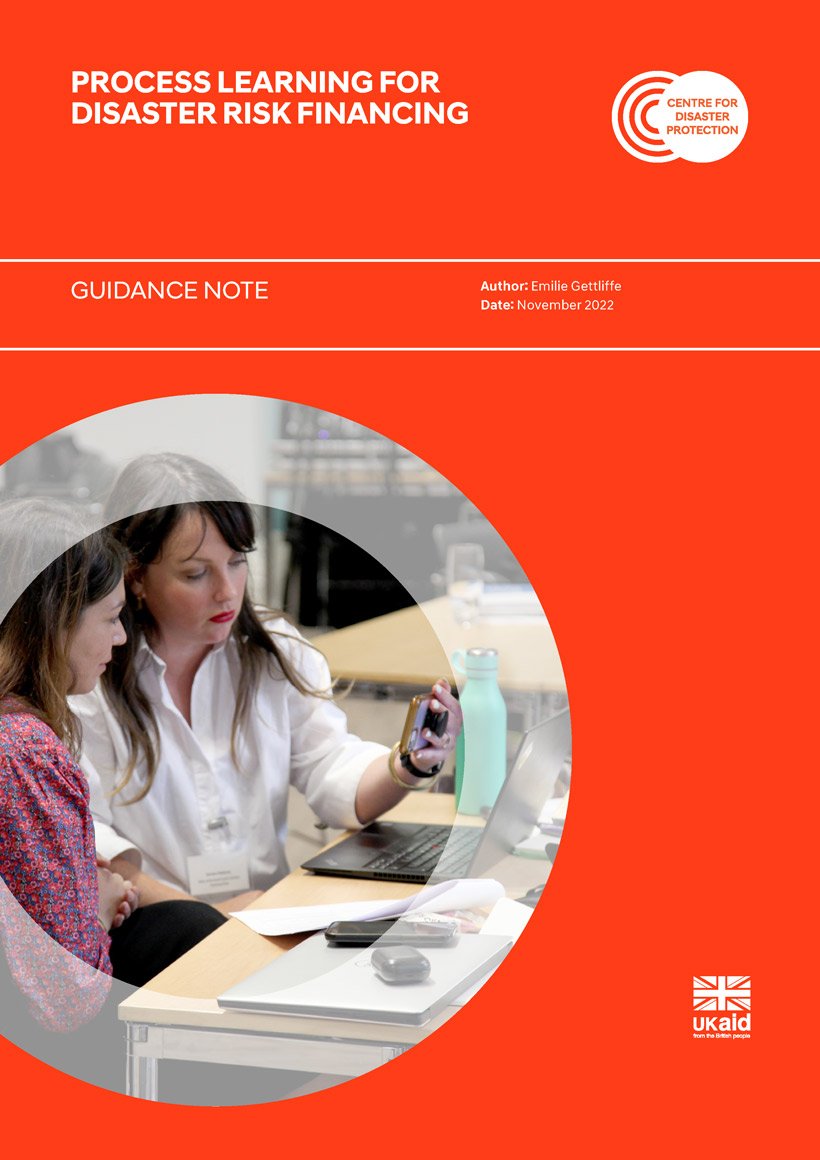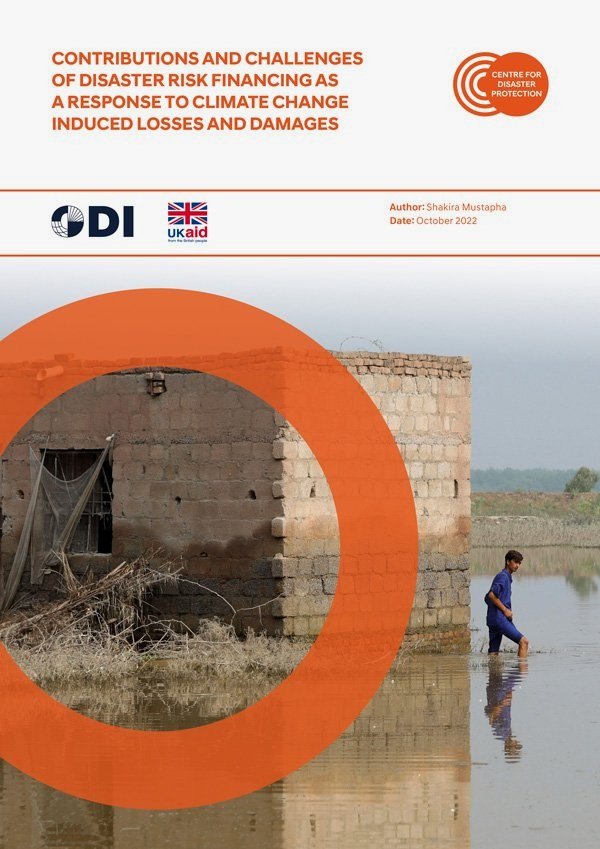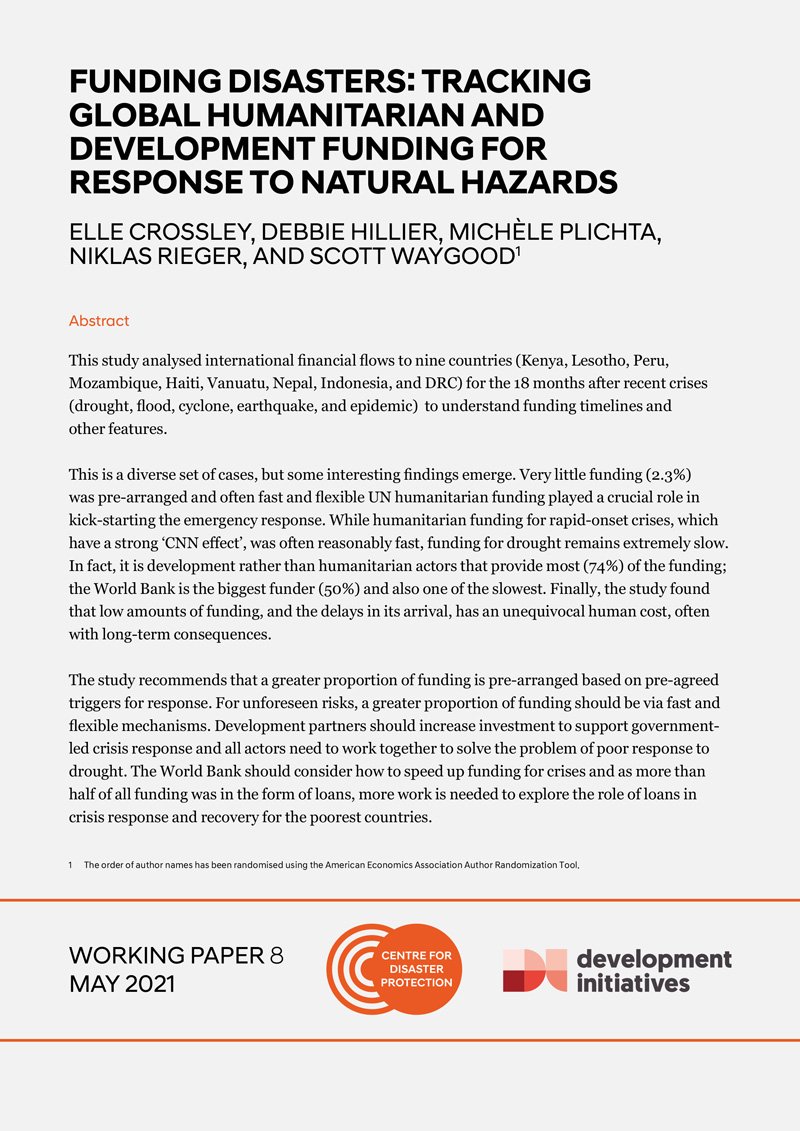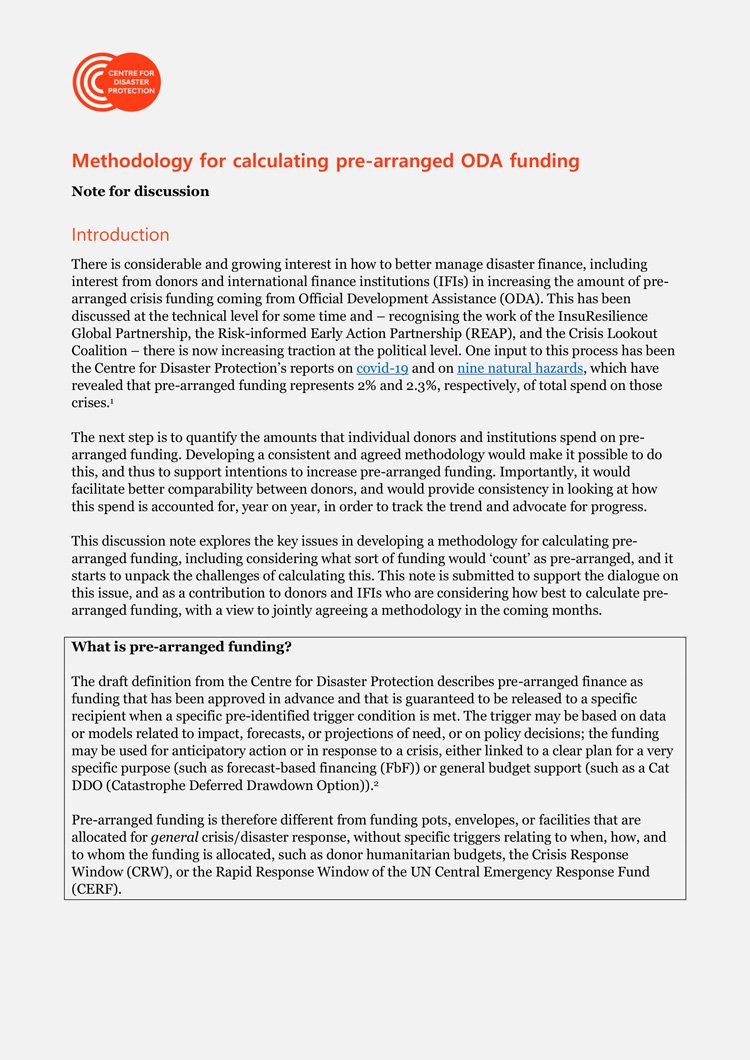
PUBLICATIONS CENTRE

PROCESS LEARNING FOR DISASTER RISK FINANCING
This guidance document offers practical steps on how to capture lessons from DRF initiatives, providing an opportunity for real-time reflection and feedback for those designing and implementing DRF systems, as well as key partner organisations. The guidance is designed to help capture and communicate learning on what is working well, which assumptions are holding true (or not) and what needs to be adjusted or changed. This guidance builds on and complements the Centre’s ‘7 Keys to Unlock Effective DRF’. Process learning is particularly relevant to the characteristic of constant improvement – embedding scrutiny and learning into
DRF initiatives to ensure quality and effectiveness.

CONTRIBUTIONS AND CHALLENGES OF DISASTER RISK FINANCING AS A RESPONSE TO CLIMATE CHANGE INDUCED LOSSES AND DAMAGES
Human-induced climate change will continue to cause losses and damages, with vulnerable developing countries and communities that have contributed least to the climate crisis bearing the brunt of its consequences. Loss and Damage is the third pillar of the international climate regime in the 2015 Paris Agreement, alongside mitigation and adaptation.
In order to play a well-targeted and effective role, it is important to understand the applications and limits of Disaster Risk Finance as a response to climate-induced losses and damages. This paper explores how DRF instruments are being framed and understood within the panorama of Loss and Damage policy and finance agendas, highlighting areas of contention and sensitivity.

MALAWI ANTICIPATORY ACTION: PROCESS LEARNING ON TRIGGER DEVELOPMENT
Building on growing evidence that acting prior to the onset of predictable shocks is significantly faster, more dignified, and more cost effective than traditional humanitarian response, UN OCHA has been facilitating the setup of multiple anticipatory action frameworks, including this one in Malawi. This report offers lessons on the process of developing the trigger for the Malawi AA Framework and captures lessons on how AA pilots are being designed and implemented in real time.

UN OCHA ANTICIPATORY ACTION. LESSONS FROM THE 2020 SOMALIA PILOT
This report looks at key lessons from the UN Office for the Coordination of Humanitarian Affairs (OCHA) first anticipatory action (AA) pilot for drought in Somalia, designed and endorsed in 2019. The framework triggered in June 2020 based on projected food insecurity due to covid-19, locusts and flooding.

EXPLORING A ROLE FOR TRIGGERS AND RISK-INFORMED FINANCING IN COMPLEX CRISES
Alongside the Airbel Research and Innovation Lab at the International Rescue Committee (IRC) we provide key lessons for how effective crisis response can be financed and triggered, useful across a broad range of organizations that engage in crisis response. This work is a first step towards developing a practical and pragmatic blueprint for how organisations can systematically re-orient their resources and processes towards a state of readiness for future crises. You can also read our ‘Exploring triggers’ blog.

FUNDING DISASTERS: TRACKING GLOBAL HUMANITARIAN FUNDING FOR RESPONSE TO NATURAL HAZARDS
This study analysed international financial flows to nine countries (Kenya, Lesotho, Peru, Mozambique, Haiti, Vanuatu, Nepal, Indonesia, and DRC) for the 18 months after recent crises (drought, flood, cyclone, earthquake, and epidemic) to understand funding timelines and other features.

METHODOLOGY FOR CALCULATING PRE-ARRANGED ODA FUNDING
We explore the key issues in developing a methodology for calculating pre-arranged funding, including what sort of funding would ‘count’ as pre-arranged, and starts to unpack the challenges of calculating this. This note supports the dialogue on this issue, and as a contribution to donors and IFIs who are considering how best to calculate pre-arranged funding.
